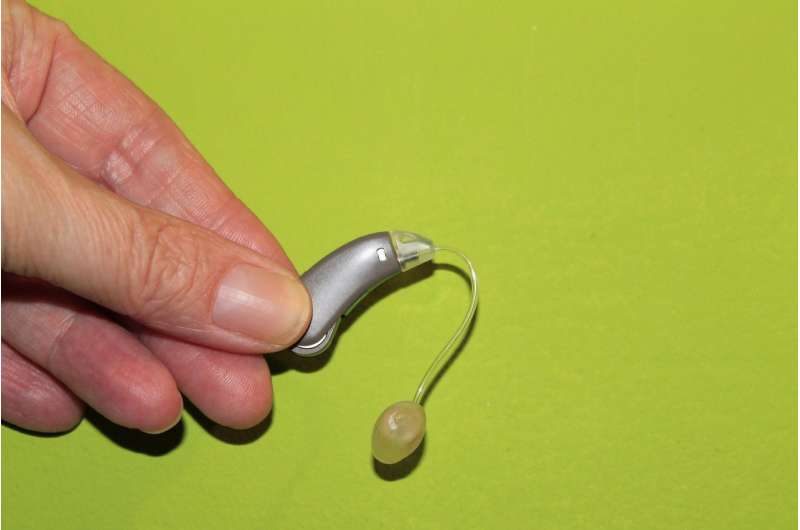
A team of researchers at the Ear Institute, University College London has found that the sound-processing algorithms used in hearing aids can degrade the ability of hearing-impaired people to discriminate sounds. In their paper published in the journal Nature Biomedical Engineering, the group describes their study of hearing aids using brain probes in gerbils. John Middlebrooks, with the University of California at Irvine has published a News & Views piece outlining the known problems with modern hearing aids and the work done by the team in England.
Prior research has shown that despite improvements over the past several decades, hearing aids are still not as effective at restoring hearing as many would hope, and many people prescribed hearing aids don’t use them. As Middlebrooks notes, hearing aids are, at their most basic level, sound amplifiers. They accept sound via a microphone, boost its levels and then play the boosted sound through a speaker. In more recent times, hearing aids have been improved through the use of microcircuitry that provides wide dynamic range compression (WDRC)—technology that boosts softer sounds more than louder sounds in the hope of balancing out the sound that the person hears. In this new effort, the researchers have found that the reason WDRC technology fails to deliver intelligible, audible sound is because it fails to account for supra-threshold effects.
Source: Read Full Article
